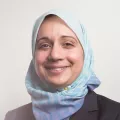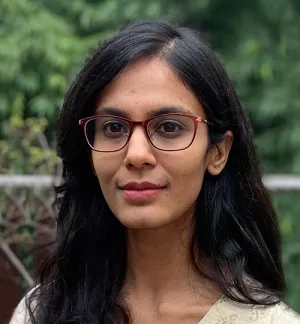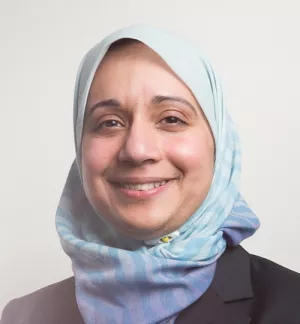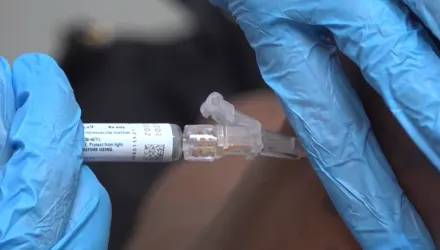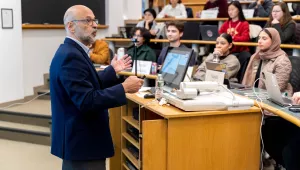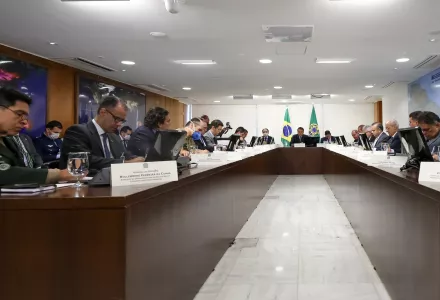
Governmental lockdowns in developing countries have brought into sharp focus an uneasy choice—the choice between lives and livelihoods. Millions of workers across the global "South" have already lost their livelihoods and are at risk of starvation, in the midst of strict lockdowns due to the COVID-19 pandemic. In such places, full lockdowns may not be viable for long. An Indonesian minister noted that for countries that lack a strong social safety net, "full lockdowns will only lead to more hunger, starvations and death."
Many developing countries are faced with a different set of questions as compared to those in developed economies, in dealing with the current crisis. And some seem to be flying blind. In countries where many workers are daily wage earners or do not have paid leaves from employers, how best can interaction or movement be restricted, without restricting livelihoods? What are the social, health, and economic consequences of, for instance, different lockdown strategies between urban and rural areas or between economic sectors? The very nature and extents of the trade-offs to be made stand far from clear. And what is more, these are questions that no single expert can fully answer on their own.
Policy choices are often difficult in times of calm, and in times of crisis the choices only become starker. For complex, interconnected questions, models can serve as useful aids and can provide guidance for decision-making. In some countries, such as the United Kingdom and the United States, models are playing an important role in guiding government strategies for addressing the Covid-19 crisis. However, in many developing countries there is a deep void in capacity for modeling and use of analytics for policy. As the present COVID crisis is revealing, this void has dangerous and costly implications.
Not restricted to traditional domains such as engineering or the physical sciences, models are being increasingly used for exploring social phenomena. Models can play a significant role in guiding policy strategies for complex social systems; they can help to represent social processes, develop and test policy strategies, and ask questions about those processes. Models are not just instrumental in exploring strategies to prevent disease transmission; they are also being used to explore soil and water conservation policies, evaluate various energy and climate policies, and even design policies to fund research.
Models are particularly useful in "complex" situations, where the consequences of a choice cannot be anticipated using experience, common sense, or a single disciplinary theory. When stakes are high and real-life experiments like Randomised Control Trials are extremely risky, unethical, or impractical to run, models and simulations are a practical approach to explore strategies under uncertainty.
Models can play another crucial role—that of bringing different perspectives together. When built with inputs from a range of stakeholders and experts with varied disciplinary backgrounds, models help coherently integrate various forms of knowledge, arrive at a compromise, or at least foster and create shared understanding of complex societal problems. This is crucial because public policy issues, whether the current Covid-19 crisis, air pollution, or climate change, rarely can be addressed with knowledge of singular disciplines nor publicly embraced without social acceptance.
Useful models, however, take time and effort to build. Given the urgency of the pandemic, and with human lives at stake, it is important that governments and local research communities—social scientists, epidemiologists, economists, and computer scientists—work together quickly.
Much of the advances in computation for social issues have been made in—and remain with advanced countries. For countries that lack in-house modelling expertise, partnerships with international academic modelling communities can help combine knowledge of computational techniques with local contextual knowledge of social processes. Governments and news outlets should also meticulously collect reliable data and make it freely accessible to the general public—and to research communities.
In the long term, governments and academic institutions should make investments to build, sustain, and use modeling capacity in a transparent and participatory manner. Relationships between scientific communities and policymakers should be systematically strengthened. Once set up, such resources can be used both at times of crises and calm—and across diverse policy domains.
To be sure, models are far from silver bullets. They can enlighten or deceive; depending on the fit between their purpose and their simplified representation of reality. Therefore, an awareness of how and when models can be reliably used for addressing social problems is critical. Additionally, models do not address ethical issues that are sure to come up in making social trade-offs.
Making the modelling process participatory, transparent, and democratic, is therefore, crucial. Most often, attention to process is as important as the outcome. Inputs from stakeholders such as, for instance, elected representatives, farmers, and daily wage laborers, could go a long way. This helps both build better models, while leveraging their analytic strengths, and prevents the misuse of models.
Although far from crystal balls, models help us ask "what-if" questions for an uncertain world. Having the ability to ask such questions and the capacity to receive answers—not from guess work but from a systematic analytical process—can make the difference between taking the right turn at the crossroad, particularly when stakes are high and resources are constrained.
Statements and views expressed in this commentary are solely those of the author and do not imply endorsement by Harvard University, the Harvard Kennedy School, or the Belfer Center for Science and International Affairs.
Iychettira, Kaveri and Afreen Siddiqi."Why Developing Countries Should Build Computational Modelling Capacity for Policy Analytics." Belfer Center for Science and International Affairs, Harvard Kennedy School, June 4, 2020.


